Introduction
How To Use
- Levofloxacin comes as a tablet and a solution to be taken by mouth.
- Take it with a full glass of water.
- The tablet may be taken with or without meals.
- The solution should be taken one hour before or two hours after eating.
- Take it at the same time each day to help you remember.
- Do not crush, chew, or break the tablet.
- Do not alter your dosage without a doctor’s approval.
- Do not use it for longer than it is prescribed.
- Follow the directions on your prescription label carefully.
- The dosage of levofloxacin is based on the patient’s age, medical condition, general health, and response to treatment.
Expert Advice
- Take a tablet/ capsule with or without meals.
- Take 3 hours before or 2 hours after taking antacids or products containing calcium, iron, magnesium or zinc.
- Inform prescriber and discontinue medication if there are signs of inflammation, pain in tendons, rash, itching, difficulty in breathing or swallowing, facial edema (swelling on face), palpitations (fast beating of heart), tingling or chest pain.
- Complete full course of therapy even if you feel better.
- Take sufficient amounts of fluids (2-3 litres per day) to maintain hydration, unless restricted by the prescriber.
- If you have diabetes check blood glucose regularly.
- Avoid direct sunlight, wear sunscreen, proper eyewear and protective clothing to prevent photosensitivity.
Primary Uses
Bacterial infections
Indications
- Infections of the urinary tract.
- Infections of the respiratory tract.
- Infections affecting the skin and soft tissues.
- Inhalation anthrax (Bacillus anthracis causes anthrax, a rare but deadly bacterial infection. It is spread through anthrax spore-contaminated air, water, and food).
- Otitis externa (Swimmer’s ear, also known as otitis externa, is an infection that affects the ear canal, that links the exterior of the ear to the eardrum.)
- Bacterial conjunctivitis (pink eye infection).
- Pelvic inflammatory disease.
- Prostate infections
Side Effects
GI upset, raised liver enzymes, insomnia (difficulty in sleeping), headache, dizziness, anorexia (loss of appetite), dysgeusia (bad taste), dyspnoea (difficulty in breathing), arthralgia (joint pain), myalgia (muscle pain), tinnitus (ringing in ear), asthenia (weakness), pyrexia (fever), reports of visual disturbances, hepatic (liver) injury, severe skin disorders are some of its side effects. If tendon disorders or peripheral neuropathy (damage to the nerves outside the brain and spinal cord) is seen discontinue the drug.
Warnings
 Pregnancy
Pregnancy
Research suggests that this medicine should be avoided by pregnant women.
 Lactation
Lactation
Research suggests that this medicine should be avoided by women who are breastfeeding.
 Driving
Driving
This medicine may cause dizziness; therefore, do not drive immediately after taking levofloxacin.
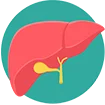 Liver
Liver
People suffering from any kind of liver disease should not take levofloxacin without consulting with a doctor.
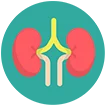 Kidney
Kidney
Levofloxacin should be used with extreme caution in people who are suffering from any kind of kidney disease.
 Alcohol
Alcohol
It is unknown if this medicine interacts with alcohol or not; therefore, consult your doctor before consuming alcohol.
 Precautions
Precautions
Tell your doctor if you are hypersensitive to levofloxacin or other fluoroquinolones before taking it. Inactive components in this medicine may result in serious allergies or other complications. For more information, consult your doctor. Inform your doctor if you have any of the following medical conditions: diabetes, joint or tendon issues (such as bursitis, tendonitis), kidney problems, mental conditions (such as depression), seizure disorders, a specific muscle disorder (myasthenia gravis), nerve disorder (like peripheral neuropathy), blood vessel problems (like aneurysm or obstruction of the aorta or any other blood vessels, stiffening of the arteries), Ehlers-Danlos syndrome, Marfan Syndrome. Levofloxacin has been linked to a heart rhythm disorder (QT prolongation). QT prolongation can induce dangerous (occasionally fatal) irregular or fast heartbeat as well as other symptoms (like fainting and dizziness) that require immediate medical intervention. If you have specific medical problems or are using other medicines that may induce QT prolongation, your chance of QT prolongation could be increased. Before using levofloxacin, inform your doctor about all the medicines you are currently taking, as well as if you have any of these conditions: certain heart problems (heart failure, sluggish pulse, QT prolongation in the ECG), a family history of specific heart problems (QT prolongation in the ECG, sudden cardiac death) etc.). Low levels of magnesium and potassium in the blood may potentially increase your risk of having QT prolongation. This risk may rise if you use certain medicines (such as diuretics) or have conditions such as excessive sweating, diarrhea, or vomiting. Consult your doctor about how to use levofloxacin safely. Levofloxacin can cause significant blood sugar fluctuations in certain people, especially if they have diabetes. Monitor your blood sugar as prescribed and inform your doctor about the results.
Contraindications
- Do not take levofloxacin if you are allergic to it or to any of its constituents.
- Muscle injury is a risk with levofloxacin, particularly in the elderly. If you have tendon difficulties (tissue that joins bone to muscle), don’t take levofloxacin.
- Myasthenia gravis is a skeletal muscle weakening illness that causes significant weakness in any of your arm or leg muscles. If you suffer from myasthenia gravis, you should avoid taking levofloxacin because it can make your condition worse.
FAQS
What is the work of levofloxacin?
Levofloxacin is used to treat a variety of bacterial infections.
How to administer this medicine?
This medicine is mostly taken orally. The dosage is dependent on the age, condition and its severity. Please consult your doctor before using this medicine.
How to store this medicine?
Please store this medicine at room temperature (18-25 Celsius). Keep medicine away from excessive light, moisture, and children. Please do not flush medicines down the toilet. Please read the leaflet provided with the medicine for further storage guidance.
Should you take levofloxacin with food?
It can be taken with or without food.
What should I avoid while taking levofloxacin?
Avoid dairy products such as milk and yogurt for at least 2 hours before and after taking the medicine.
Does levofloxacin make you tired?
It may cause some people to become dizzy, lightheaded, drowsy, or less alert than they are normally.
What medications I cannot take with Levofloxacin?
Common medications that cannot be taken with levofloxacin are antacids, glucose lowering agents, corticosteroids, NSAIDs, warfarin, iron, zinc and calcium supplements etc.
Disclaimer
Dawaai’s intention is to make sure that it’s consumers get information that is accurate, reviewed by an expert and error-free. However, the information mentioned here should not be used as a replacement for the advice of a qualified physician. The information given here is for informational purposes only, which may not cover all possible precautions, side effects, contraindications or drug interactions. Consult your doctor and discuss your queries related to any medicine or disease.



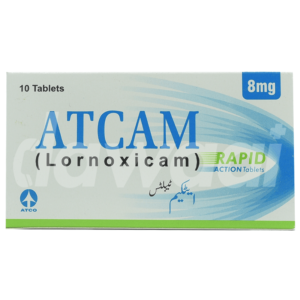
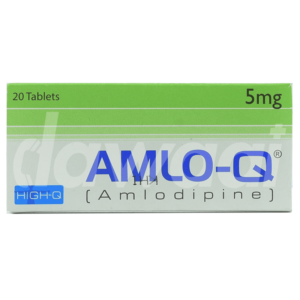
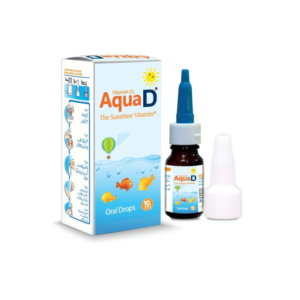
Reviews
There are no reviews yet.